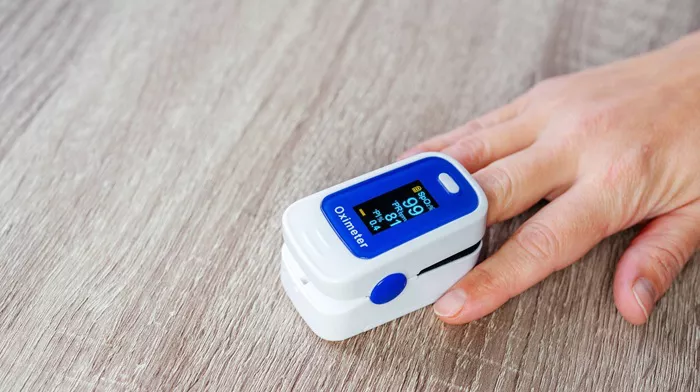Blood oxygen levels, often measured as arterial oxygen saturation (SaO2) or oxygen saturation (SpO2), play a critical role in maintaining the health and function of the human body. Oxygen is essential for the survival of every cell, tissue, and organ, serving as a fuel for cellular metabolism and energy production. In this comprehensive article, we delve into the vital significance of blood oxygen levels, exploring their role in overall health, the implications of low oxygen levels (hypoxemia), and the importance of monitoring oxygen saturation levels in various clinical settings.
The Role of Oxygen in the Body
Before delving into the importance of blood oxygen levels, it’s crucial to understand the role that oxygen plays in the body’s physiological processes. Oxygen is a key component of cellular respiration, the process by which cells convert nutrients into energy. Through a series of biochemical reactions, oxygen is used to metabolize glucose and other organic molecules, generating adenosine triphosphate (ATP) – the primary energy currency of the cell.
In addition to its role in energy production, oxygen is involved in various other essential functions, including:
Cellular Maintenance: Oxygen is necessary for cellular repair, growth, and maintenance, facilitating processes such as DNA synthesis, protein synthesis, and cell division.
Brain Function: The brain is highly dependent on oxygen for normal function, as oxygen deprivation can quickly lead to cognitive impairment, confusion, and loss of consciousness.
Cardiovascular Health: Oxygen is vital for the function of the cardiovascular system, helping to oxygenate blood in the lungs and deliver oxygen-rich blood to tissues and organs throughout the body.
Immune Response: Oxygen plays a role in the immune response, supporting the activity of immune cells such as macrophages, neutrophils, and lymphocytes in combating infections and pathogens.
Given its critical importance, maintaining adequate oxygen levels in the bloodstream is essential for overall health and well-being.
Understanding Blood Oxygen Levels
Blood oxygen levels refer to the amount of oxygen carried by hemoglobin – the protein molecule in red blood cells responsible for transporting oxygen from the lungs to tissues throughout the body. Oxygen saturation (SpO2) is typically expressed as a percentage and represents the percentage of hemoglobin molecules bound to oxygen compared to the total number of hemoglobin molecules present in the blood.
Arterial oxygen saturation (SaO2) is a more precise measure of blood oxygen levels and is typically measured using arterial blood gas (ABG) analysis, which involves sampling blood from an artery, usually the radial artery in the wrist. Oxygen saturation (SpO2), on the other hand, is commonly measured noninvasively using pulse oximetry – a painless and noninvasive method that involves placing a sensor on a finger or earlobe to measure oxygen saturation levels indirectly.
The Importance of Monitoring Blood Oxygen Levels
Monitoring blood oxygen levels is essential for assessing respiratory function, diagnosing and managing various medical conditions, and guiding treatment decisions in clinical settings. Here are some key reasons why monitoring blood oxygen levels is important:
Early Detection of Respiratory Distress: Monitoring oxygen saturation levels can help identify respiratory distress and hypoxemia (low blood oxygen levels) early, allowing for prompt intervention and treatment. This is particularly critical in patients with respiratory conditions such as asthma, chronic obstructive pulmonary disease (COPD), and pneumonia.
Assessment of Oxygen Therapy: For patients receiving supplemental oxygen therapy, monitoring blood oxygen levels helps ensure that oxygen delivery is adequate to meet the body’s metabolic needs. Regular monitoring allows healthcare providers to adjust oxygen therapy settings as needed to maintain optimal oxygenation.
Evaluation of Cardiovascular Function: Blood oxygen levels provide valuable information about cardiovascular function and the efficiency of oxygen delivery to tissues and organs. Abnormalities in oxygen saturation levels may indicate underlying cardiovascular conditions such as heart failure, arrhythmias, or shock.
Guidance for Surgical and Anesthetic Management: Monitoring blood oxygen levels is essential during surgical procedures and anesthesia administration to ensure patient safety and optimize oxygenation. Continuous monitoring of oxygen saturation levels helps anesthesiologists and surgeons detect and respond to changes in oxygenation status promptly.
Assessment of Sleep Disorders: Blood oxygen levels are routinely monitored in patients with sleep-related breathing disorders such as obstructive sleep apnea (OSA). Monitoring overnight oxygen saturation levels can help diagnose OSA and assess the effectiveness of treatments such as continuous positive airway pressure (CPAP) therapy.
Implications of Low B
lood Oxygen Levels (Hypoxemia)
Low blood oxygen levels, or hypoxemia, can have serious implications for overall health and well-being, as oxygen deprivation can lead to tissue damage, organ dysfunction, and life-threatening complications. Common causes of hypoxemia include:
Respiratory Conditions: Conditions that affect the lungs and airways, such as asthma, COPD, pneumonia, and acute respiratory distress syndrome (ARDS), can impair oxygen exchange and lead to hypoxemia.
Cardiovascular Conditions: Cardiovascular disorders, including heart failure, myocardial infarction (heart attack), arrhythmias, and shock, can compromise oxygen delivery to tissues and organs, resulting in hypoxemia.
Altitude: Exposure to high altitudes can lead to hypoxemia due to decreased oxygen partial pressure in the atmosphere, leading to symptoms of altitude sickness and potentially severe hypoxia at extreme elevations.
Anemia: Anemia, characterized by a deficiency of red blood cells or hemoglobin, can impair oxygen transport and lead to tissue hypoxia despite normal arterial oxygen saturation levels.
Conclusion
In conclusion, blood oxygen levels play a crucial role in maintaining the health and function of the human body, serving as a vital indicator of respiratory and cardiovascular function. Adequate oxygenation is essential for cellular metabolism, energy production, brain function, immune response, and overall well-being.
Monitoring blood oxygen levels is essential for assessing respiratory function, diagnosing medical conditions, guiding treatment decisions, and ensuring patient safety in clinical settings. Whether measured invasively using arterial blood gas analysis or noninvasively using pulse oximetry, regular monitoring of blood oxygen levels provides valuable insights into oxygenation status and helps healthcare providers detect and respond to abnormalities promptly.
By understanding the importance of blood oxygen levels and their implications for health and wellness, individuals can take proactive steps to optimize oxygenation and promote overall well-being. Whether through lifestyle modifications, medical interventions, or close monitoring in clinical settings, maintaining optimal blood oxygen levels is essential for supporting cellular function, organ health, and longevity.
[inline_related_posts title=”You Might Be Interested In” title_align=”left” style=”list” number=”6″ align=”none” ids=”8612,8609,8535″ by=”categories” orderby=”rand” order=”DESC” hide_thumb=”no” thumb_right=”no” views=”no” date=”yes” grid_columns=”2″ post_type=”” tax=””]































